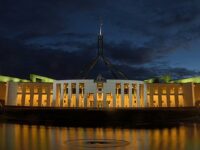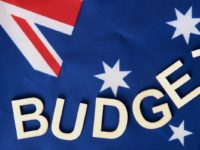The 2025-26 Budget was unveiled on Tuesday, and, with Treasurer Jim Chalmers handing down a budget in deficit, it was unsurprisingly sparse in terms of new small-business measures.
Much of the content relevant to SMEs had already been announced prior to the Budget, including:
- A $150 energy rebate for about one million small businesses next financial year.
- More protections for SMEs against unfair trading practices.
- An extra $3 billion to complete the National Broadband Network – a significant measure with small business operations increasingly relying on stable internet connection.
- A $10,000 incentive for eligible apprentices, plus 100,000 free TAFE places annually from 2027, to combat construction skills shortages.
- $7 million to help enforce the Franchising Code of Conduct.
- Alcohol excise reforms, including raising the excise refund cap by $50,000.
- A further $750 million investment in Australian manufacturing as part of the existing Future Made in Australia plan.
The Budget did bring some new measures – including the unexpected omission of the popular $20,000 instant asset write-off. Shockingly, the measure was not renewed for another year in this Budget, as it was in previous budgets. ISB spoke to tax agents about what to do now.
Tax cuts
What was new in Tuesday’s budget were fresh tax cuts, which should theoretically put more cash in customer pockets and boost small business spending. From July 1, 2026, every taxpayer will get an extra tax cut of up to $268. Another tax cut of up to $268 will be delivered from July 1, 2027, for a total $536 cut.
However, the financial benefits to customers may be “modest”, according to tax expert Mark Chapman of H&R Block.
“The move is expected to counter bracket creep by lowering average tax rates for all taxpayers, especially for low- and middle-income earners,” he explained.
Banning non-compete clauses
Another new – and controversial – measure was the ban on non-compete clauses for workers earning less than the high-income threshold, which will start in 2027.
On one hand, removing non-compete clauses could encourage workers to start their own ventures without contract constraints. On the other hand, it may mean that smaller businesses with fewer resources to retain employees could see talent poached by larger, wealthier companies.
“[Banning non-compete clauses] will add costs as [small businesses] protect their IP and will most likely see businesses limit employment which will impact the economic output,” said the Victorian Chamber of Commerce and Industry in a statement.
Payday super confirmed
The Budget also confirmed that the controversial payday super reforms are on track, according to the Super Members Council. This change to superannuation guarantees will require all employers – including small businesses – to pay super with every pay cycle from July 1, 2026. The Budget papers reaffirmed the timetable and a MYEFO investment of $404 million to meet it.
Some further energy relief on the horizon
Beyond the $150 energy rebate, the Government has announced the extension of the ACCC’s Inquiry into the National Electricity Market and the continuation of the Energy Efficiency Grants program for SMEs.
Both actions were lauded by advocacy group Energy Consumers Australia (ECA).
“We are very pleased to see that the ACCC’s Inquiry into the National Electricity Market will be extended for another 12 months,“ said ECA CEO Dr Brendan French. “This important work by the ACCC has uncovered vital information about the issues facing households and small businesses in the energy market.”
More support for First Nations businesses
The Government has committed $3.4 million over three years to increase the participation rate of First Nations women in business. The policy will be co-designed and delivered by First Nations businesses and organisations.
More money for ATO scrutiny
The ATO will also receive additional funding to assist with tax compliance scrutiny. Specifically, it will use the extra funds to crack down on the shadow economy and on non-compliant individuals.
“Those that wish to claim dodgy expenses because their mates at the pub told them it was ok need to be aware that this is a massive focus,” registered tax agent Stacey Price told ISB. “Plus those with overdue tax and superannuation payments need to get on top of their cash flow before further scrutiny occurs.”














